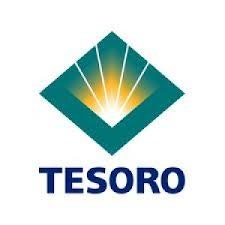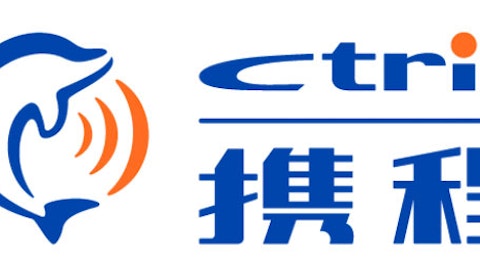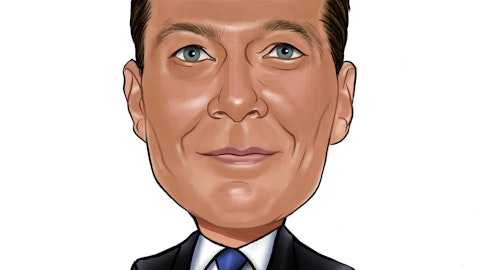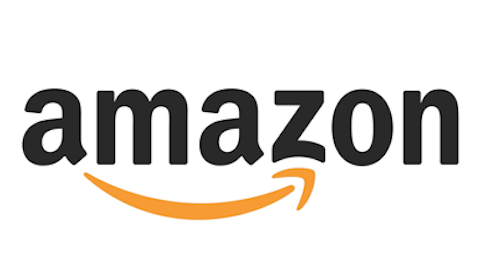David Greenspan‘s Slate Path Capital staged an impressive performance in the first quarter, according to our metrics, which are based on the fund’s equity holdings in companies exceeding $1 billion market-cap, as of the latest 13F filing. All of the fund’s 14 long equity positions qualified for this criteria and delivered an average weighted return of 10.93% during the first quarter. In comparison, S&P 500 ETF (SPY) returned merely 0.9% during the same period. Since hedge funds typically hold a variety of other financial instruments that they are not required to report on, our estimate could be significantly different from the actual returns.
Through our research at Insider Monkey we discovered that a portfolio of the 15 most popular small cap picks of hedge funds beat the S&P 500 Total Return Index by nearly a percentage point per month between 1999 and 2012. On the other hand the most popular large cap picks of hedge funds underperformed the same index by 7 basis points per month during the same period. In forward tests since August 2012 through March 2015 top small-cap stocks beat the market by a hefty 79.4 percentage points (read the details here) and returned over 132%. Hence a retail investor needs to isolate himself from the herd and take advantage of the prevalent arbitrage opportunities in the market by concentrating on small-caps.

Slate Path’s history doesn’t run as deep as most of the other well established hedge funds on the Wall Street, since Greenspan laid its foundation only in 2012. However, the fund does have a formidable $3.8 billion in assets under management. Greenspan brought with him two of his former colleagues, Stephen Cook and Ethan Binder from John Griffin’s Blue Ridge Capital, where he was a partner and managing director. The market value of Slate Path’s equity portfolio stood at $1.43 billion at the end of 2014. Consumer Discretionary’s 31% allocation is the highest in the equity portfolio. Some of the most significant movers among Slate Path’s holdings during the first quarter were Tesoro Corporation (NYSE:TSO), Walgreens Boots Alliance Inc (NASDAQ:WBA), Impax Laboratories Inc (NASDAQ:IPXL), Pandora Media Inc (NYSE:P) and Youku Tudou Inc (ADR) (NYSE:YOKU).
Moving on to one of Slate Path’s top picks in the energy sector, Tesoro Corporation (NYSE:TSO), whose stock delivered a hefty 23.36% return in the first quarter. The fund held some 1.82 million shares valued at $134.95 million of the petroleum refining company at the end of last year. Investors of Tesoro Corporation (NYSE:TSO) are looking forward to EBITDA expansion this year from the company’s last year acquisition of Carson refinery. The $10.41 billion energy company is also working on its $190 million Port of Vancouver railport project, which has been further delayed quite possibly until next year, owing to Governor Jay Inslee’s tight timetable and the long adjudication process which has to be carried out before the final approval. Based on over 700 hedge funds that we track, D E Shaw, founded by David Shaw, held the highest stake in Tesoro Corporation (NYSE:TSO) at the end of the fourth quarter.
Walgreens Boots Alliance Inc (NASDAQ:WBA) is Slate Path’s largest holding with 2.25 million shares valued at $171.07 million. The stock of the newly merged retail drugstore chain appreciated by 11.6% during the first quarter. The company has run into a bit of legal trouble as one of the it’s investors, Washtenaw County employees’ pension plan filed a securities-fraud complaint against it. The plaintiff claims that Walgreens Boots Alliance Inc (NASDAQ:WBA) was not very forthcoming about the drawbacks of its merger with Alliance Boots, and was more focused on hyping the positives from the deal. The drawback isn’t a small one, involving a shortfall in earnings for the 2016 fiscal year between $1.8 billion to $2.3 billion. Other prominent shareholders of Walgreens Boots Alliance Inc (NASDAQ:WBA) include Andreas Halvorsen‘s Viking Global and Barry Rosenstein’s JANA Partners.





